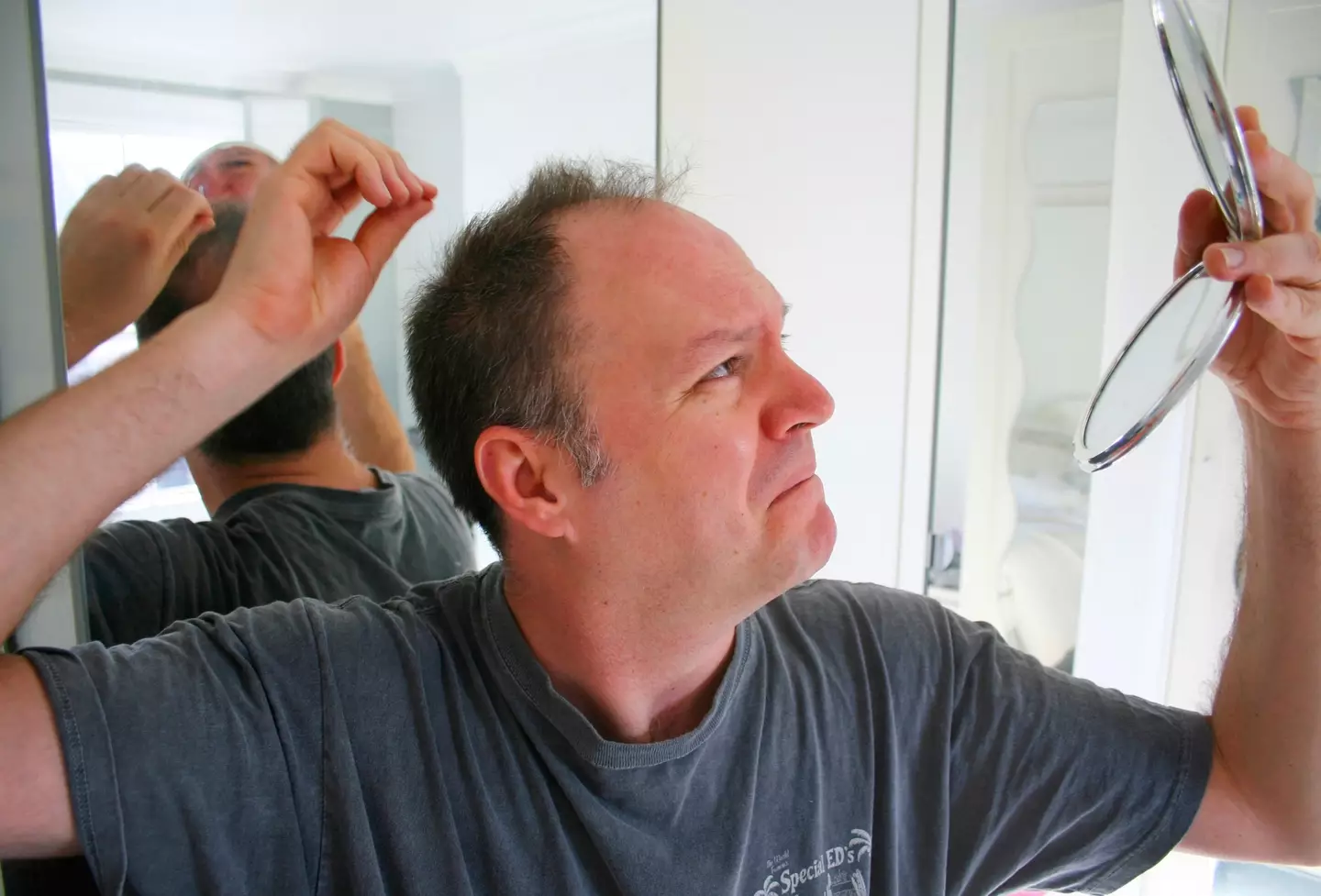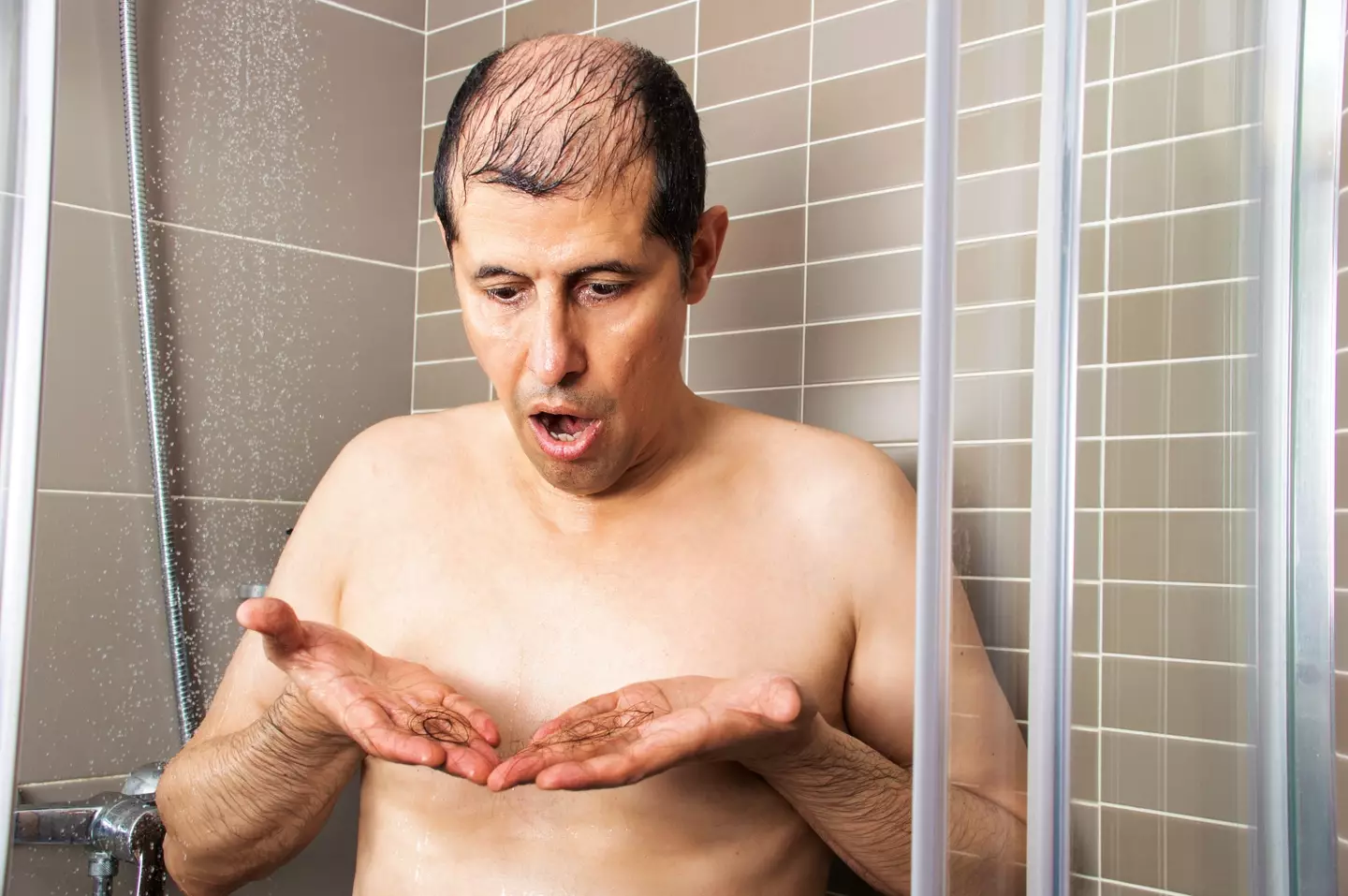.png)
Hair loss can be an inevitable part of life for a lot of men, but it may well become a thing of the past.
This is because scientists have just found a possible 'cure' for baldness after the discovery of what's been dubbed the 'caveman gene'.
This discovery suggests that we humans actually do have the ability to consistently grow hair everywhere, but it's this newly-discovered gene which results in baldness.
Scientists at the University of Utah Health and the University of Pittsburgh are now suggesting that this gene simply needs to be switched on again for a person to re-grow their hair.
Advert
This could also be a breakthrough discovery for anyone with hair loss - not just men - such as those who are undergoing chemotherapy or have conditions like alopecia.
Dr Nathan Clark, of the University of Utah Health, said: "Some genetic changes might be responsible for loss of hair.
"We have taken the creative approach of using biological diversity to learn about our own genetics."

The study looked at the genetic codes of 62 animals, including our close cousins apes and gorillas, to discover why the 'caveman gene' leads to baldness in humans.
Advert
Dr Amanda Kowalczyk from the University of Pittsburgh added: "There are a good number of genes we don't know much about.
"We think they could have roles in hair growth and maintenance."
However, even if scientists aren't able to completely cure baldness, there has still been other massive breakthroughs in this area.
A new drug, for example, has reportedly helped people reverse their hair loss in as little as six months last year, according to the Daily Star.
The drug, which has been described as an 'an important milestone' in hair loss treatment, targets what's known as alopecia areata.
Advert
This is an autoimmune condition that results in hair loss when the immune system attacks hair follicles by mistake.
The trial was conducted by the drug company Concert Pharmaceuticals in the US and involved 706 volunteers with hair loss.
They were given varying doses of CTP-543, with 42 percent and 30 percent of people who took a 12mg or 8mg dose twice a day apparently seeing 80 percent of their hair return.

This could potentially be a groundbreaking step in the right direction for those who feel like their lives have been detrimentally effected by hair loss.
Advert
It can have a pretty big effect on a person's confidence, especially when it comes to putting themselves out there.
Three quarters of men have said they believe it's stopping them from finding love, while 40 percent of men say it's affected their self-esteem.
A study of 800 men with hair loss also found that 73 percent said they were less successful in their romantic pursuits compared to their thicker haired friends.
One in five believed that their baldness was to blame, with 32 percent taking the view that they had better luck with the ladies when they had more hair.
The study was commissioned by Dr Furqan Raja, a specialist hair transplant surgeon for The Private Clinic of Harley Street.
Advert
He said: "Most men are already anxious around dating but hair loss forms a large part of this anxiety.
"Images portrayed on social media have raised unrealistic expectations and we find people comparing themselves to what they see as perfection."
Topics: News
